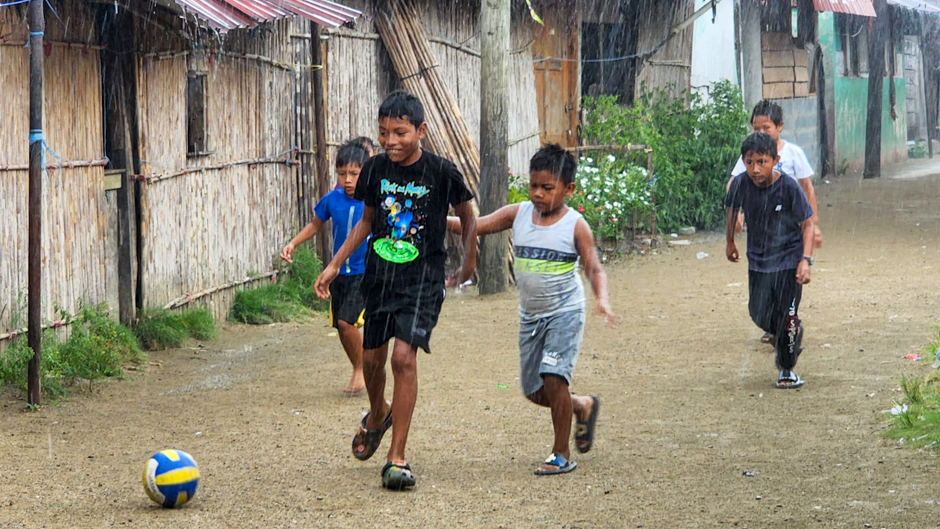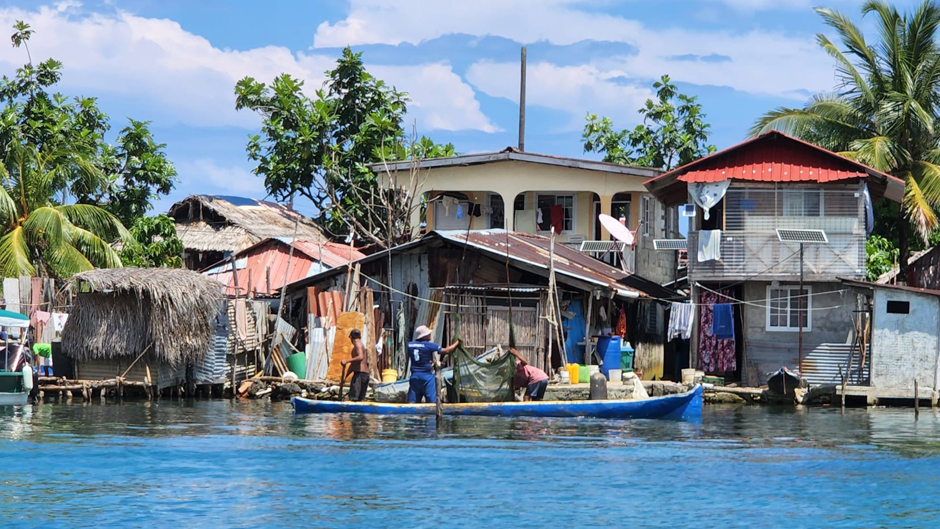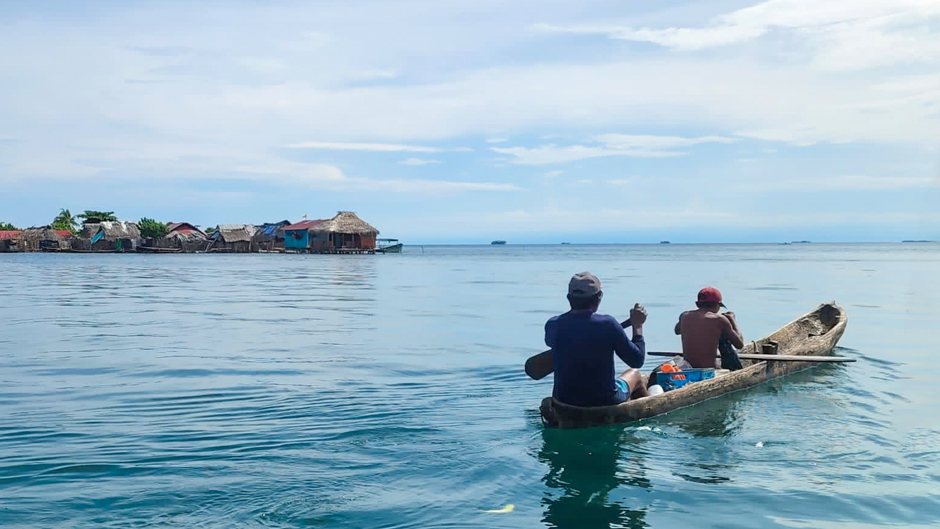Footpaths on the island are made of sand. Residents must travel by dugout canoe to the mainland to find drinking water. And the only electricity comes from a public generator.
The Indigenous Guna people of Gardi Sugdub have never had much. They have lived on the small island, one of more than 350 in the San Blas archipelago off Panama’s northern coast, for more than 100 years, carving out a living from fishing and tourism.
But now, their tiny island is slowly disappearing. Sea level rise, one of the detrimental impacts of global warming, is swallowing it up.
University of Miami researcher Daniel Suman is documenting the plight of Gardi Sugdub’s more than 1,200 residents as they grapple with overcrowded conditions on the low-lying island and prepare for a relocation to the mainland that will make them the world’s latest climate refugees.

“It’s a prime example of the effects of climate change,” Suman, a professor of environmental science and policy at the University’s Rosenstiel School of Marine, Atmospheric, and Earth Science, said of the conditions on Gardi Sugdub. “Heavy rains that occur during certain months, combined with rising seas and strong winds from tropical storms, have made life there quite difficult.”
Flooding, he noted, is a major nuisance, with seawater inundating homes and pathways, particularly those on the edges and lower parts of the island, which is only about 400 meters long and 150 meters wide.
With satellite data from the National Oceanic and Atmospheric Administration showing that sea levels in the archipelago have risen from 1 millimeter a year in the 1960s to about 3.5 millimeters annually today, moving to the mainland is the only alternative for residents, he said.
But the move, which most residents want and the Panamanian government favors, has been stalled for various reasons during the past 13 years, leaving Gardi Sugdub’s residents frustrated and angry.
The Panamanian government has constructed 300 cement-block, two-bedroom houses on the mainland as part of a new settlement for Gardi Sugdub residents. But the units sit empty, as the settlement, which is about a 15-minute boat ride from the island, still lacks an adequate water and sewage system. Meanwhile, construction of a major health care facility has ceased as funding has run out. “There are many different strings to tie before the relocation actually happens,” said the Panamanian-borne Suman.
While the new village on the mainland is larger, it is located several miles from the sea. This raises concerns that Gardi Sugdub villagers, who forged a living as fishers while living on the island, will find it more difficult to sustain their livelihood once the relocation takes place.
As such, some longtime residents are concerned that the planned relocation threatens their way of life and culture. That sentiment is precisely what Suman and his research team discovered when they traveled to the island in October to survey residents about their concerns of living on Gardi Sugdub and relocating to the mainland.

While many are concerned about sea level rise, flooding, overpopulation, and the lack of jobs and municipal services on the island, they also are apprehensive about the move to the mainland because many promises made by the government have been broken, Suman’s team found. Residents, for example, were supposed to finally relocate last September, but the move has been pushed to February 2024. “People are concerned that even that deadline won’t be met,” he said.
Suman conducted his research along with Rosenstiel School alumna Ana Spalding, an Oregon State University researcher who is the founding director of the Adrienne Arsht Community-Based Resilience Solutions Initiative at the Smithsonian Tropical Research Institute in Panama.
This week, he and Spalding are presenting their research in Dubai, United Arab Emirates, where they are attending the 28th United Nations Climate Change Conference of the Parties, known as COP28.
“The relocation of Gardi Sugdub’s residents is unique because not only does it involve the move of a community, but here we have an Indigenous group with different cultural norms,” Suman explained. “It’s much more complicated than the relocation of a nonindigenous community because of the needs of cultural sensitivity.”

